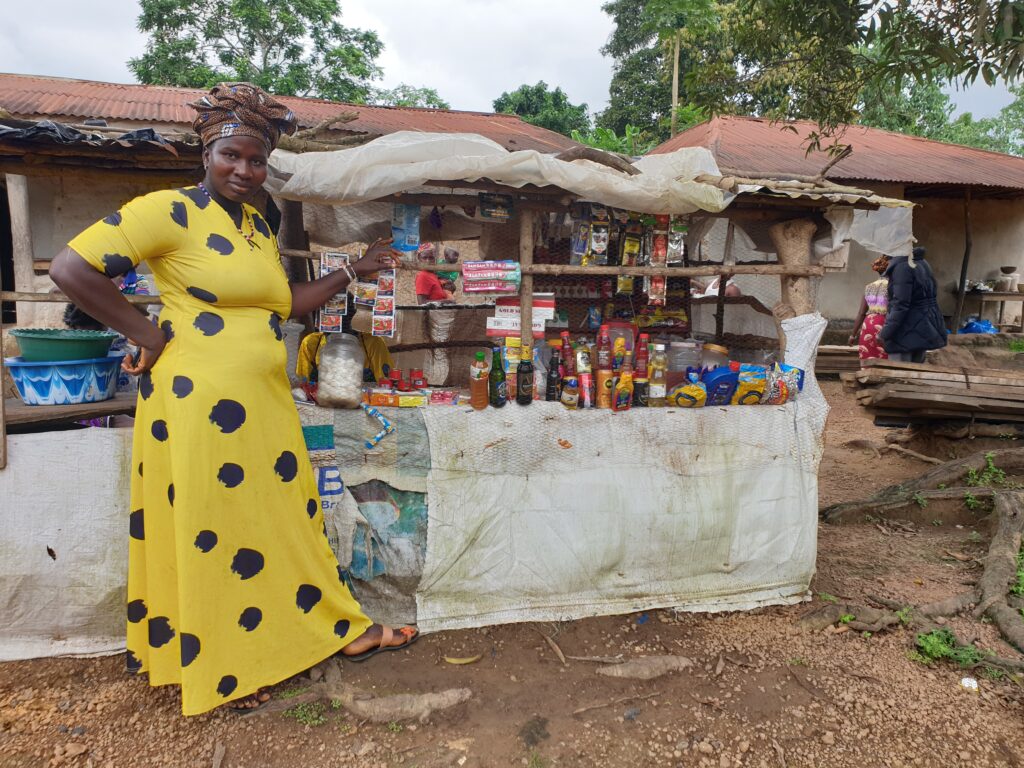A simple idea we began in our Uganda projects has been so successful that we are now hoping to replicate it in Sierra Leone.
What Is The Problem We Are Trying To Fix?
Even before the Ukraine war pushed up grain prices, 26% of children in Sierra Leone had high levels of stunted growth because of malnutrition. Since Russia invaded Ukraine, the price of essentials like rice and cassava have risen by 40% or 50% in the West African country. Parents have reluctantly
These challenges, and more, faced Hawanatu, a 34-year-old Ebola survivor. Her first husband died, but when she later remarried, she soon became a widow again.
I found it difficult to even feed and clothe my three children. And the community gossiped about me, saying losing two husbands is a curse.
The stress of what she had been through, and feeling unable to take care of her children led her to feel suicidal.
Help, and Self-Help
Hawanatu’s village chief realised she was in trouble and told her to go to Network for Africa’s partner charity, Conforti. She received counselling, and joined a self-help group along with others who had been struggling just as she had. With their encouragement, she started a small business buying and selling food items. She says:
Now I can feed and find clothing for my children, and even provide school learning materials for them. As well, the community is now more aware of post-traumatic stress disorder and depression, and I don’t face much discrimination.

However, the costs of buying bulk items to sell and paying for transport are eating up more and more of her profit due to the cost-of-living crisis.
What Is Network for Africa Doing Now?
Our partner, Conforti, wants to use the vegetable garden model we started in Uganda. Our self-help groups consist of people with mental illness (such as depression and post-traumatic stress disorder), epilepsy and their care-givers. The Ugandan groups who started communal vegetable gardens quickly noticed several positive results from growing food together:
- they produced enough food to feed their families, as well as having some left over to sell
- they could put enough food in their stomachs to take medication safely
- they could start businesses with the income they made
- their self-confidence improved
- they found respect for their efforts in the community
- and they found pleasure in working as a team.
Now, we would like our 15 self-help groups in Sierra Leone (367 people) to follow in the footsteps of our Uganda pioneers. Our aim is to raise a total of £2,440 or $3,180 so that they can receive training and begin growing peanuts and krain krain (a bit like spinach). If that is successful, we will add different crops to the trial. There’s nothing complicated about this approach to helping people rebuild their lives, but it puts them in charge of their future, rather than keeping them dependent on a handout. To support this initiative, please visit our donation page.
We thank our local partners for their resilience and resourcefulness throughout Covid and the cost-of-living crisis. We also thank our supporters who make this work possible.